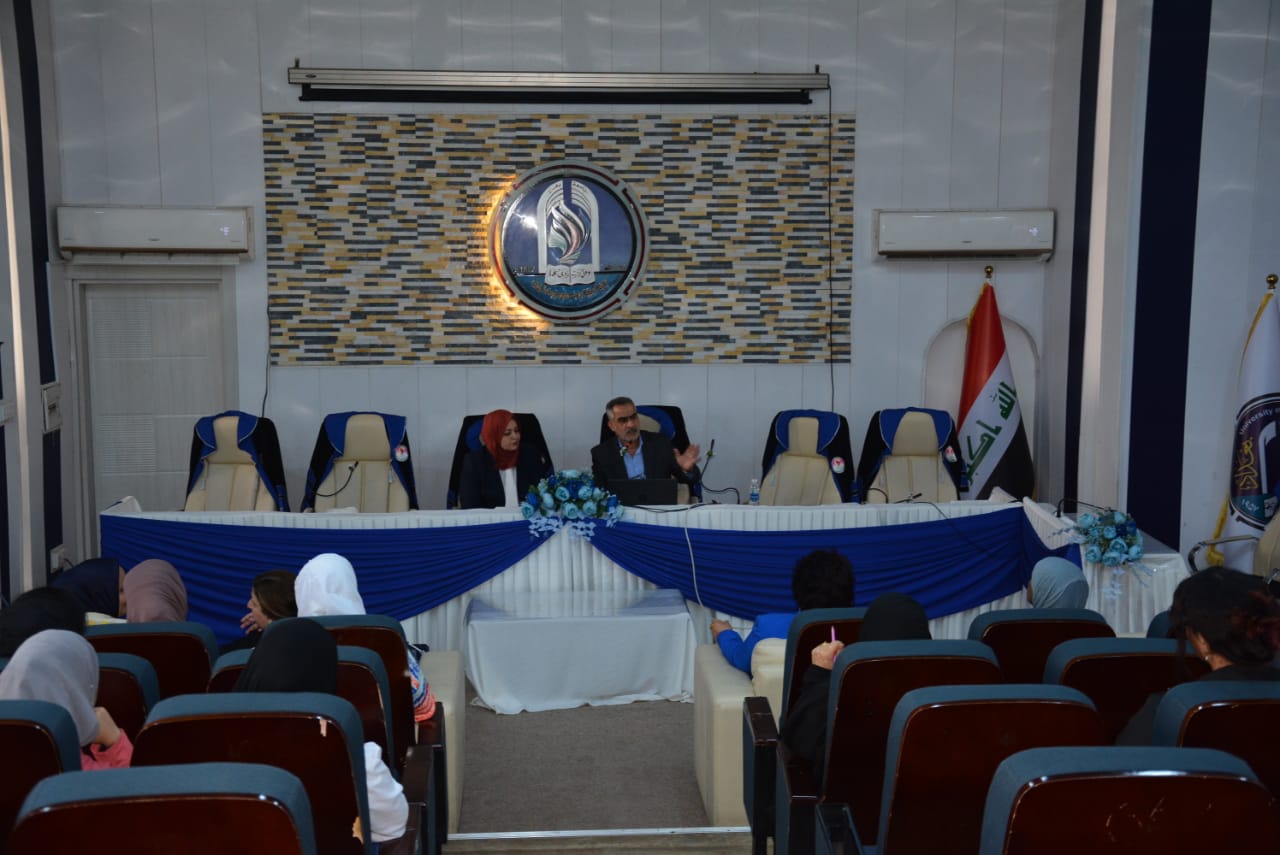The official in charge of the Quality Assurance and Performance Evaluation Division at the College of Physical Education and Sports Sciences for Girls, University of Baghdad, Dr. Bayda Tariq Abdul Wahed, hosted the Deputy Director of the Quality Management and Institutional Development Department at the Ministry of Oil, Mr. Ibrahim Hussein Al-Shuwaili, to hold a scientific symposium entitled (What is quality, how to implement systems Quality in institutions).
The topics of the symposium were delivered by Mr. Al-Shuwaili, explaining the concept of quality as a measure of the excellence of the product or service provided so that it is free of defects, deficiencies and large variations through strict adherence to measurable and verifiable standards to achieve uniformity and similarity in the product that satisfies specific requirements of customers and users, and one of its stages is inspection, guarantee and assurance, and the total quality.
He also referred to the stages of application to obtain the conformity certificate: the qualification stage, the stage of contracting with one of the accredited bodies to obtain the certificate in the applied system after this body conducts an external audit, and at the same time he noted its most important principles of quality management by focusing on the customer, leadership, Employee participation, process approach, improvement, evidence-based decision making, relationship management.
Al-Shuwaili added that among the most important requirements for quality are the quality policy, the context of the institution, identifying the concerned parties and their requirements, quality of goods and services, resource management, documentation requirements, communications, quality objectives, performance evaluation, work environment, training and awareness.
He also explained the benefits achieved for the organization: keeping the organization abreast of global development in the field of work systems and performance, reducing the costs of failure and lack of quality, which reflects negatively on the organization’s profits, reducing the time that officials spend on supervision, direction, follow-up and monitoring activities, spreading the work culture in accordance with the principle of continuous improvement, and increasing the company’s capacity. To compete and find new markets for its products, to increase the company’s stock prices and the prices of its products to distinguish it from others, to have a documented system for working with a methodology based on the system and not individuals, to improve the value and outputs of each process, and to raise the organization’s ability to identify the risks surrounding it.
This symposium achieves one of the sustainable development goals represented by the fourth goal: quality education, and the seventeenth goal: establishing partnerships to achieve the goals.
